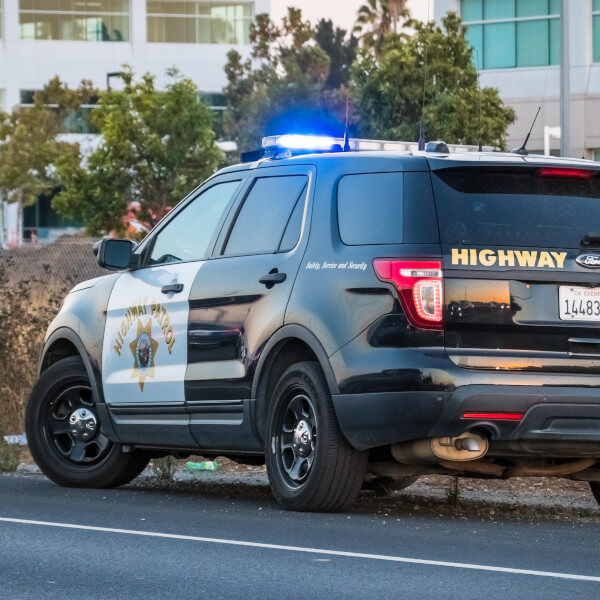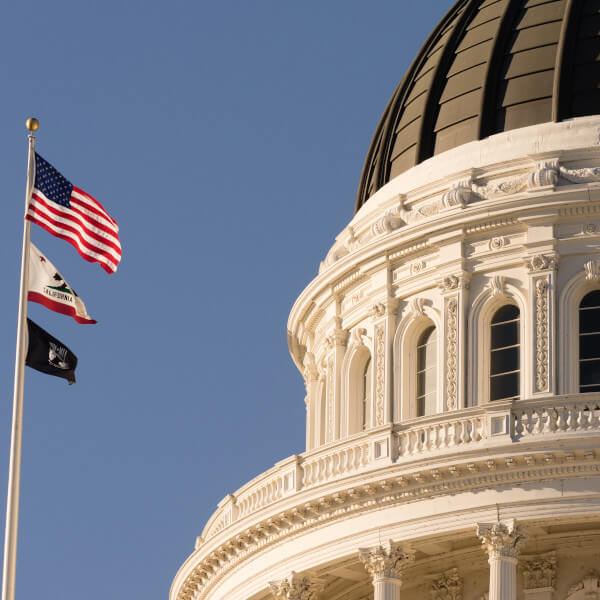The Basics of California DUI Laws Explained
Driving under the influence is a serious offense in California, as it is elsewhere in America. Under California DUI laws, the California DMV includes both drugs and alcohol when charging people for DUIs in the state. It is essential to understand the intricacies of California DUI laws to protect yourself and stay compliant with the state’s regulations. We will explore the specifics of DUI laws in California, including definitions, penalties, the arrest process, laws relating to minors, and the impact on driver’s licenses.
Definition of DUI in California
In California, DUI refers to operating a motor vehicle while being under the influence of alcohol, drugs, or a combination of both. It is important to note that California has a zero-tolerance policy for operating a vehicle under the influence of drugs, regardless of whether they are prescribed or not.
DUI laws in California establish that individuals with a blood alcohol concentration (BAC) of 0.08% or higher are considered intoxicated. For commercial drivers, the legal limit is 0.04%, and for drivers under the age of 21, any detectable amount of alcohol in their system leads to penalties.
Driving under the influence (DUI) is a serious offense in California, with severe consequences that can impact various aspects of your life. In addition to legal penalties such as fines, license suspension, and possible jail time, a DUI conviction can also result in increased insurance rates, mandatory alcohol education programs, and even the installation of an ignition interlock device in your vehicle.

The Role of Blood Alcohol Concentration (BAC) in California DUI Laws
BAC is a crucial factor when determining DUI offenses in California. Law enforcement officers use breathalyzer or blood tests to measure BAC levels during traffic stops or following an arrest. It is important to remember that even if your BAC is below the legal limit, you can still be charged with a DUI if there is evidence of impairment.
It’s essential to understand that the effects of alcohol on the body can vary depending on factors such as weight, metabolism, and tolerance levels. Consuming even a small amount of alcohol can impair your judgment, coordination, and reaction time, increasing the risk of accidents on the road. This is why it is always recommended to designate a sober driver or use alternative transportation if you plan on consuming alcohol.
Legal Consequences of a DUI in California
A first-time DUI offense in the state of California can lead to a range of severe consequences. In addition to fines that can amount to anywhere between $390 and $1,000, you may also face a driver’s license suspension of up to six months. Moreover, California DUI law mandates attendance at DUI school, probation, and the possibility of jail time are all potential outcomes of a first-time DUI conviction.
Furthermore, the impact of a DUI conviction extends beyond the immediate penalties. Those found guilty of a DUI may experience a significant increase in their car insurance rates. Additionally, limitations on future employment opportunities and challenges in obtaining professional licenses can arise as a result of a DUI conviction.

Repeat Offenses: Increasing Penalties
For individuals convicted of a DUI in California within a decade of a prior DUI conviction, the penalties become increasingly severe. Second and subsequent offenses carry higher fines, longer license suspensions, mandatory jail time, and a combination of extensive probation, DUI school attendance, and community service.
Felony DUI: When It Escalates
In certain circumstances, a DUI in California can escalate to a felony DUI charge. This is likely to happen if there are multiple prior DUI convictions within a ten-year period if the DUI results in injury or death, or if there is a previous felony DUI conviction on record. According to California DUI laws, felony DUI charges come with substantial fines, lengthy license suspensions, and significant prison sentences, underscoring the gravity of the situation.
Call Now For A DUI Lawyer in California Near You
Call 1-888-839-4384 today to get connected with one of the top-rated DUI lawyers in California near you! Drunk Driving Defense has some of the most successful and highest-rated DUI attorneys in California on our roster. They can help you navigate the complex terrain of DUI laws in California so that you can protect your rights.
The DUI Arrest Process in California
According to the implied consent statute under California DUI laws, if law enforcement officers have reasonable suspicion that you are driving under the influence, they may pull you over for a traffic stop. During the stop, officers may administer field sobriety tests, such as walking in a straight line or balancing on one foot, to assess your level of impairment.
It is important to note that you have the right to refuse field sobriety tests. However, if you refuse, officers may use this refusal as evidence against you during legal proceedings.
Field sobriety tests are designed to evaluate a driver’s physical and cognitive abilities, providing officers with indicators of impairment. These tests are standardized and have specific criteria for pass or fail, helping law enforcement make informed decisions during a DUI stop.
Arrest and Booking Procedure Under California DUI Law
DUI laws in California dictate that if the arresting officer believes you are impaired after the field sobriety tests, you will be arrested and taken into custody. After the arrest, you will undergo a booking process, during which you will be fingerprinted, photographed, and asked to provide a statement or biological sample for BAC testing purposes.
DUI booking procedures in California are essential for documenting the arrest and creating a record of the individual in custody. This process helps law enforcement maintain accurate information about the arrestee and is a standard protocol followed in DUI cases to establish a clear chain of custody for evidence.
The Role of Breathalyzer and Blood Tests
Following your arrest, law enforcement officers will typically request a breathalyzer or blood test to measure your BAC. The results of these tests serve as crucial evidence during legal proceedings. It is worth noting that California’s implied consent laws require drivers to consent to these tests; failure to do so can result in automatic driver’s license suspension.
Breathalyzer and blood tests are scientific methods used to determine the concentration of alcohol or drugs in a person’s system. These tests provide quantitative data that can be used in court to support or refute claims of impairment. Understanding the technology and procedures behind these tests is important for anyone facing DUI charges to navigate the legal process effectively.
California DUI Laws and Minors
DUI laws in California have implemented zero tolerance laws for people under the age of 21 who choose to drink and drive. Any detectable amount of alcohol in their system can lead to significant penalties, including license suspension, fines, mandatory alcohol education programs, and potential probation.
These zero-tolerance DUI laws are in place to protect young drivers and the general public from the dangers of underage drinking and driving. By enforcing strict consequences for minors who choose to operate a vehicle under the influence, California aims to deter reckless behavior and promote safer roads for all residents and visitors.
Penalties for Underage DUI in California
Underage drivers who are convicted of DUI offenses in California face similar penalties to those imposed on adult drivers. However, these penalties may be more severe due to the zero-tolerance policy. This includes extended license suspensions, increased fines, mandatory participation in alcohol counseling programs, and potential probation.
It is crucial for underage people in California to understand the serious repercussions of driving under the influence. In addition to legal consequences, underage DUI incidents can have long-lasting effects on a young person’s future, including limitations on educational and employment opportunities. Seeking alternative transportation options or designated drivers can prevent the devastating outcomes associated with underage drinking and driving.
California DUI laws also have penalties for riding a bicycle under the influence of alcohol or drugs. If charged with a DUI on a bike as a minor, you may get a $250 dollar fine and have your driver’s license privileges delayed by one year under California Law Vehicle Code 13202.5.



California DUI Law Driver’s License Suspension
Upon being arrested for a DUI in California, your driver’s license may be automatically suspended. This “administrative license suspension” is separate from any subsequent penalties imposed by the court by DUI laws in California. To regain your driving privileges, you must request a DMV hearing within ten days of your arrest and demonstrate that the suspension is unwarranted.
It is crucial to understand that the automatic suspension of your driver’s license is a significant consequence of a DUI arrest in California. This suspension can have far-reaching implications on your daily life, affecting your ability to commute to work, run errands, or fulfill family obligations. Seeking legal guidance from a California DUI lawyer promptly after a DUI arrest is essential to navigate the complex process of challenging the suspension and potentially regaining your driving privileges.



License Reinstatement Process
If your license is suspended following a DUI conviction, you will need to complete all court-ordered penalties, including satisfying any required alcohol education programs and paying fines. After fulfilling these requirements, you may apply to reinstate your California driver’s license. The specific process for reinstatement may vary based on the circumstances of your offense.
Reinstating your driver’s license after a DUI conviction involves a series of steps that can be intricate and time-consuming. From attending court hearings to submitting documentation of completion of mandated programs, each requirement demands careful attention to detail. Navigating this process successfully often requires the expertise of legal professionals who specialize in DUI cases, as they can provide invaluable guidance and support throughout the reinstatement journey.
More Resources On DUI Laws in California
If you’d like to learn more about DUI laws in California, read some of our detailed articles below. We explore all different aspects of California DUI laws so that you can know exactly what you’re up against.
Additionally, if you’ve been charged with a DUI in California, call 1-888-839-4384 anytime, 24/7 to get in touch with a top-rated California DUI lawyer near you!

